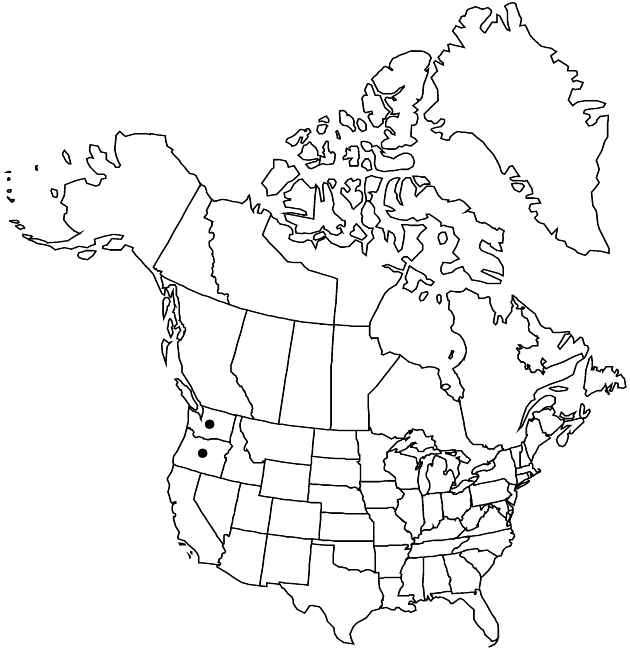Difference between revisions of "Columbiadoria hallii"
Phytologia 71: 249. 1991.
Common names: Columbia River goldenrod
Basionym: Haplopappus hallii A. Gray
Synonyms: Hesperodoria hallii (A. Gray) Greene
Treatment appears in FNA Volume 20. Treatment on page 168.
FNA>Volume Importer |
FNA>Volume Importer |
||
| Line 30: | Line 30: | ||
|elevation=50–1200 m | |elevation=50–1200 m | ||
|distribution=Oreg.;Wash. | |distribution=Oreg.;Wash. | ||
| − | |discussion=<p>Columbiadoria hallii is known from the vicinity of the eastern Columbia River Gorge. It occurs also “at scattered stations [south] in the Cascades to the Calapooia Mountains,” where the plants “are not precisely like the others, and may prove to be varietally distinct” (A. Cronquist 1955, p. 216).</p> | + | |discussion=<p><i>Columbiadoria hallii</i> is known from the vicinity of the eastern Columbia River Gorge. It occurs also “at scattered stations [south] in the Cascades to the Calapooia Mountains,” where the plants “are not precisely like the others, and may prove to be varietally distinct” (A. Cronquist 1955, p. 216).</p> |
|tables= | |tables= | ||
|references= | |references= | ||
| Line 54: | Line 54: | ||
|publication year=1991 | |publication year=1991 | ||
|special status= | |special status= | ||
| − | |source xml=https://jpend@bitbucket.org/aafc-mbb/fna-data-curation.git/src/ | + | |source xml=https://jpend@bitbucket.org/aafc-mbb/fna-data-curation.git/src/8f726806613d60c220dc4493de13607dd3150896/coarse_grained_fna_xml/V19-20-21/V20_367.xml |
|tribe=Asteraceae tribe Astereae | |tribe=Asteraceae tribe Astereae | ||
|genus=Columbiadoria | |genus=Columbiadoria | ||
Revision as of 15:23, 18 September 2019
Leaf blades (largest) 2–5 cm. Heads 5–15+. Ray corollas 6–10 mm, laminae 6–7 × 2 mm. Disc corollas 6–7 mm. Cypselae 4–5 mm.
Phenology: Flowering Aug–Oct.
Habitat: Bluffs, benches, crevices, dry, open to lightly wooded slopes
Elevation: 50–1200 m
Discussion
Columbiadoria hallii is known from the vicinity of the eastern Columbia River Gorge. It occurs also “at scattered stations [south] in the Cascades to the Calapooia Mountains,” where the plants “are not precisely like the others, and may prove to be varietally distinct” (A. Cronquist 1955, p. 216).
Selected References
None.
Lower Taxa
None.

